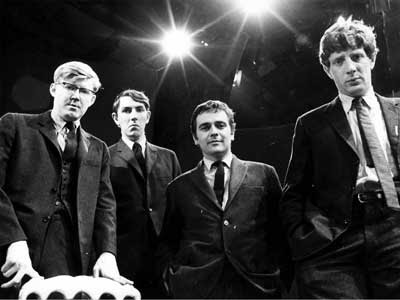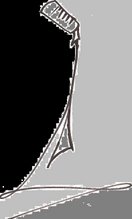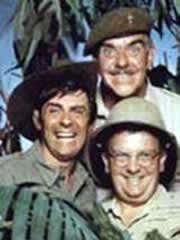 Unfastening the restraints on a new form of humour going by the name of ‘satire,’ came four off cuts from the crème of the public school boy crop. Unwittingly grabbing serious theorists, Jonathan Miller and bespectacled Alan Bennett (Miller from Cambridge and Bennett from Oxford), they were thrown together by the artistic director, at the time, from the Edinburgh Festival; Robert Ponsonby, with short, London born Dudley Moore and chain smoking, professional writer, Peter Cook. The idea was to create a show that gave an insight to the Festival delights. By acquiring the services of four jolly good chaps fresh out of the wooden panelled dormitories, seemed to be the best way to start.
Unfastening the restraints on a new form of humour going by the name of ‘satire,’ came four off cuts from the crème of the public school boy crop. Unwittingly grabbing serious theorists, Jonathan Miller and bespectacled Alan Bennett (Miller from Cambridge and Bennett from Oxford), they were thrown together by the artistic director, at the time, from the Edinburgh Festival; Robert Ponsonby, with short, London born Dudley Moore and chain smoking, professional writer, Peter Cook. The idea was to create a show that gave an insight to the Festival delights. By acquiring the services of four jolly good chaps fresh out of the wooden panelled dormitories, seemed to be the best way to start.
All already having a fairly decent amount of experience either from Cambridge Footlights or The Oxford Revue, they did all share the same alternative interest in the diversity of the Edinburgh Festival. Back in 1960, when Britain was just about coming to terms with the last of rationing and being free to think, write, perform without the stiffness of the War generation before, the world was being wrenched open like a rusty tin opener on a can of Baked Beans. The young set were scheming a way to expose, shock, but above all, entertain their peers that paved an historic route that we now know as the youth culture. It started off with the recklessness of Rock and Roll in the Fifties but that had been left solely down to the working classes. This time, it was the middle class youngsters who gave us a style of comedy that was born out of education, money and authority. Three wonderful elements that were just aching to be ridiculed…
Already writing for Kenneth Williams, Cook jumped at the chance of giving an airing to some already workable ideas he had been using for writing for other people. In the days when everyone wrote for everyone else, there was little in the way of jealousy or copyright theft going on that was taken too seriously; Eric Sykes was writing with Spike Milligan on The Goon Show, Barry Cryer was writing for Round The Horne, and although, most of the time, these co writers were nearly never credited, it didn’t seem to matter. So when Cook, decided to incorporate some material he had used for other shows, no one gave a toss.
Taking the Edinburgh stint onto a different angle, Ponsonby’s idea was that a revue show could be put on by these four inspirational thinkers and poets of their generation to enlighten audiences to participate in further festival shows. He rather eagerly handed over the reins to the four and were, frighteningly, allowed to run wild with as much freedom as possible. What actually happened was deep cut and firmly disposing the power of the authorities. Such in the line of fire by these brilliantly scornful surrealists was Harold Macmillan and the Government, Public School masters and governors and of course, the Catholic Church; all sections of the middle society community that simply were not cross questioned ever before. What would the public think of four young ’kids’ taking on the very establishments who gave them the education, money and the platform to speak in the first place? The show was launched in 1960 along with the assistance of John Bassett to keep the show on a professional keel, but it was Peter Cook who remained, throughout, the uncontrollable one. With the pen forever fixed in his hand a cigarette rocking gently from the corner of his mouth, he held tightly to the steering wheel of the show. It was known around the production dwellers that Cook had already participated in a dispute over wages. Due to the greediness of his agent for taking him off the Williams revue circuit as a writer, and after Cook had received his pay packet, his agent was grabbing a large chunk as payment for losing the revue, thus Cook earnt less than the other three. This in turn, allowed him especially to used his dissolutionisms at point blank range on all who thought they were above him.
Despite being a flop around the clubs and spots around the Scottish city, the show took off in the deeper seated middle class establishments in London, thus, not just the show was given a name but the four brain children when given the same title and Beyond The Fringe was born.
The initial idea wasn’t supposed to be as culturally groundbreaking as it turned out to be. It is only since the unearthing of a certain cult movement for satire, that these shows have been resurrected. Forwarding the way for such shows immediately after it’s big break, were fellow satirical ventures, ‘At Last, The 1948 Show,’ and ‘That Was The Week That Was.’ The early Sixties opened great flood gates for a style of humour that has branched off into tiny slips of twigs ever since yet still all themes, proudly holding onto their pioneering roots.
The Beyond The Fringe set consisted of well produced and polished lines of music skit’s a la Dudley Moore, twinkling at a Grand piano and straight to the point comedy sketches featuring a figure of authority and a being of an ‘under ‘ position. When listed in this form, it is easy to misconstrue that the ability of BTF was merely of it’s decade rather than of any real intelligent ground breaking priority. What we probably fail to remember was it’s importance in the grand scheme of graduating comedy. As with The Goon Show, the element of ‘silliness’ had to come to the fore sooner rather than later. A classic example was the infamous sketch where upon Peter Cook is awaiting, as a theatre director, the entrance of Mr Arthur Spiggot (Dudley Moore), a one legged man, eagerly hoping for the part of ’Tarzan’ for which he is auditioning. Just the very thought of a one legged man auditioning for the part where he is needed to be as energetic and as physically fit as possible is quite ridiculous yet perfectly funny. Not a great deal of satire dished out here, granted, but it is an example of how diverse these four young men were. This was as silly as it all got. The genius of Cook was his ability to show figures of the community in a light so that all in the audience could recognise. Moore was used in a way that his short stature came under the limelight constantly. He was the character to be laughed AT. Thus the others stood as creators of surrealistic lines and thrown away endings. This was where BTF separated itself from The Goons, although it was seen that the Goons gave way to Monty Python, it was just as regarded to view Beyond The Fringe as the predecessor to its immediate relatives or at least, anything David Frost produced quickly. Monty was just as anti establishment yet not directly pointing the finger at any given post. What it saw was a gap in the comedy market that could take on board a humour based around domestic authorities. One particular feature was the Pythons dressed in drag as mother figures whilst Graham Chapman took the pipe and slippers father figure into a whole new dimension.
It was all adored and in both circumstances, each style of humour was beautifully executed by its actors. Arrogantly ahead of its time, BTF was given the seal of approval by it’s avid public, and shamed by the very pillar of authority that didn’t own it. The BBC.
The middle aged chaps, stiffly sitting behind the desks in grey suits would have taken the show off completely, let alone allowed it to successfully take it to Broadway in 1962. The BBC had an older, more reserved generation to take care of and young oikes whose main idea was to tear the face off the one and only establishment, the nations beloved Beeb was only to cause shame, dismay and embarrassment. Whilst the BBC sat bound and gagged, the show continued wily showering the public with their own brand of piercing the Military and the Home Guard. War veterans were reportedly hollering from the stalls in disgrace before promptly reseating themselves down to enjoy the rest of the show. It was believed that the BBC, fearing no control, avidly exaggerated events and thoughts of it’s watchers in the hope that BTF would simply go away.
Strangely taking Broadway by the balls and even heralding the arrival of President John Kennedy to one of its shows, it was the start of a whole new love affair for the U.S. Realising that JFK once sat in the stalls and laughed heartedly at Cook’s uncanny impression of Harold Macmillan, it was a bitter pill for the BBC to swallow. Yet it was from this point on, that America welcomed with open arms to virtually anything that we dished out as British humour. If only, at the time, the BBC could have seen that. From BTF to Python, Benny Hill and Connolly, we have never been able to put a foot wrong. So why was the Beeb so against the realities of BTF? It was certainly an authority destroyer that would allow the reputation of Great Britain to simply crumble away into the Channel. However, the stiff lipped community secretly saw it as a way of playing the U.S into their hands. Since Britain had been regarded as the one and only nation with the ability to take the piss out of itself, shows like Beyond The Fringe laid the path of recognition in which when it came things other than wining the War, we weren’t another one trick pony.
The stage set for all the performances was practically empty of all props and these four young men in dark suits stood casually around like satirical Beatles. No frills, catchy tunes, silly costumes or gimmicks, just the spoken word. Breaking boundaries, they humiliated politicians and all pillars of authority came under close scrutiny by them. They became the voice of a generation who had only viewed the War in a child’s perspective. Although satire remained predominantly within the Sixties, it’s legacy still thrives today and even more so as it did then. It gave way to humour that could be given to current events, topics of the day and anything that was vivid in the minds of the everyday man on the street. They aimed their wit on figures who, not just seemed ones of great character and strength but turned them sharp on their heads and made them look ridiculous.
===============================================
As prolific innovators, we have never been able to let them lie. We have quoted , imitated and drowned ourselves in their genius ad not mater how modest these men ever were about their efforts, we still only remember them for the first ice shattering show they ever achieved. We even came up with a factious sister to the revue entitled, Behind The Fridge and pay regular homage’s in the form productions like Policeman’s Ball, and when even in his last years, we refused to let Peter Cook retire. The best and the worst move perhaps was given to Mr Moore who vanished to Hollywood for money amongst other things. Since the poignant deaths of Cook (1995) and Moore (2002) we are left with perhaps, two of the most boring people on Earth. Alan Bennett has created a safe and mildly focussed career in depressing us with his mono toned voice and his heftily weighted literature. Since the heady days of advancing out into the cold no man’s land of satirical comedy, Bennett has grown inwardly contented and remained writing dull books until he will eventually fade away. Miller, on the other hand has continued to be one of the tallest men on the planet and it still regarded as having the one and only hand transplant where they have been replaced by shovels. He has churned out a handful of BBC documentaries and is still raked in for commentary on Beyond The Fringe anniversary programmes where the BBC now feel safe to tread. Edging dangerously towards Gilbert and Sullivan once or twice, he regards himself as the very pinnacle of BFT analysis, dishing out great pleasure in the faults of our two deceased mentors.
Yet still, whether the rest of us approve or not, we relish in this forth running, ground breaking phenomena that came to us in the form of Beyond The Fringe every so often although recordings of the original shows are hard to come by. ( True vinyl for a fiver on eBay) So this is probably why it is still so appealing. We can surround ourselves with as many recording of Python and Goons as we like; the BBC have allowed us to drown in the stuff over the years, these never posed as being such an authoritative threat, yet there was something about BTF that did.
What does amuse me today is still how trendy it is in certain circles to listen and quote BTF parodies and lines (and once being of a ponsy private school myself) how such comedies are still regarded as sensational and not in the least bit dated today…
I shall leave you with two quotes from Beyond The Fringe both featuring Peter Cook as Harold Macmillan;
“…one piece of correspondence shall indelibly be printed on my memory…(pulls out a crumbled piece of paper).. Let me read it to you…” (Peter Cook, BTF 1960)
On recalling a meeting with JKF “…we talked of many things, including Great Britain’s position in the world as a kind of honest broker. I agreed with him when he said no nation could be more honest, and he agreed with me when I chaffed him and said no notion could be broker…” (Peter Cook, BFT 1960)
Beyond The Fringe were;
Peter Cook
Dudley Moore
Jonathan Miller
Alan Bennett
Directed by Duncan Wood
Produced by Don Silverman
‘Beyond The Fringe’ available on cd and vinyl £4.99 and £5.99 respectively on eBay
(Parlaphone 1961)
©M. Duffy 2007 (sam1942)
Thursday, March 01, 2007
Breaking The Establishment...The Birth Of British Satire...
Posted by
Michelle Duffy
at
Thursday, March 01, 2007
![]()
Subscribe to:
Post Comments (Atom)






No comments:
Post a Comment